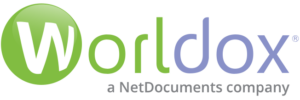COVID-19 changed how many of us work, creating a rapid pivot for many organizations, including law firms, to a hybrid or fully remote work structure. Where once everyone was expected to work onsite at the law firm offices, working from anywhere has become the norm for many law firms.
These distributed law firms, with attorneys and staff working from diverse locations, have many benefits. They provide greater flexibility to both the firm and the employees, enabling the firm to hire from a larger talent pool and attorneys and staff to enjoy a better work-life balance, leading to greater employee retention. The space needed to accommodate a distributed firm is much smaller, leading to lower overhead costs. Moving software and documents to the cloud so everyone can still access the software and documents they need comes with increased efficiency and further savings on storage of physical documents.
But distributed law firms also face challenges, including how to enable collaboration and universal access to resources, client matters, and documents, no matter where their attorneys and staff are working or how they access the system. Technology is more important than ever in facilitating a distributed law firm.
Document Management in a Distributed Law Firm
Document management software (DMS) is an essential technology that facilitates a distributed law firm model. Documents are scanned into the system and can easily be associated with case files, matters, or users. The system can be stored either on-premises or in the cloud, depending on the needs of the firm. In a distributed law firm model, DMS enables a firm to move towards a paperless office, further supporting work from anywhere. DMS offers more than just passive document storage. It provides a variety of benefits.
Increased Accessibility
Searching for and retrieving documents can be time-consuming. Document management systems make documents more searchable, improving the ability to quickly access the right documents when and where you need them. Documents can be tagged by author and type, facilitating the ability to locate a particular file written by a specific individual. Documents can be assigned to specific cases or client matters, enabling stakeholders to see all documents related to a case or client quickly and easily.
Enhanced Collaboration
Document management systems allow active interaction and collaboration by multiple stakeholders, including attorneys, clients, and staff across numerous locations. It enables the firm to give multiple users access to view, edit, share changes, and even sign documents electronically through 3rd party integrations. Safeguards built into the system prevent users from creating conflicting versions of a given document, along with the ability to restore original versions.
Stronger security
Security is essential for a legal practice, where a data breach can result in serious adverse legal consequences. Document management systems come with security features that help protect your documents, including authentication for access to files to ensure that only authorized users can retrieve and edit documents. DMS leaves an audit trail that tracks activities, such as who has viewed, accessed, or modified a document. Document management systems also help improve regulatory compliance, making it easier to maintain retention schedules, and classify and store documents properly.
Digital Solutions for 21st Century Law Firms
At Worldox, we believe that providing our clients with resources to understand the digital environment into which legal has accelerated is vital. We provide our clients with document management solutions on-site or in the cloud. Contact us for more information on how Worldox can help your firm streamline its document management and make your files more searchable.


